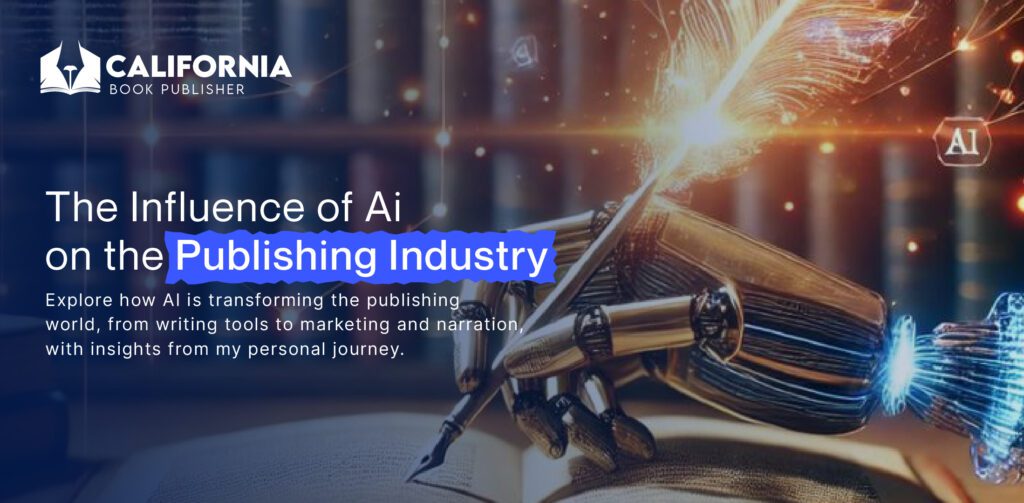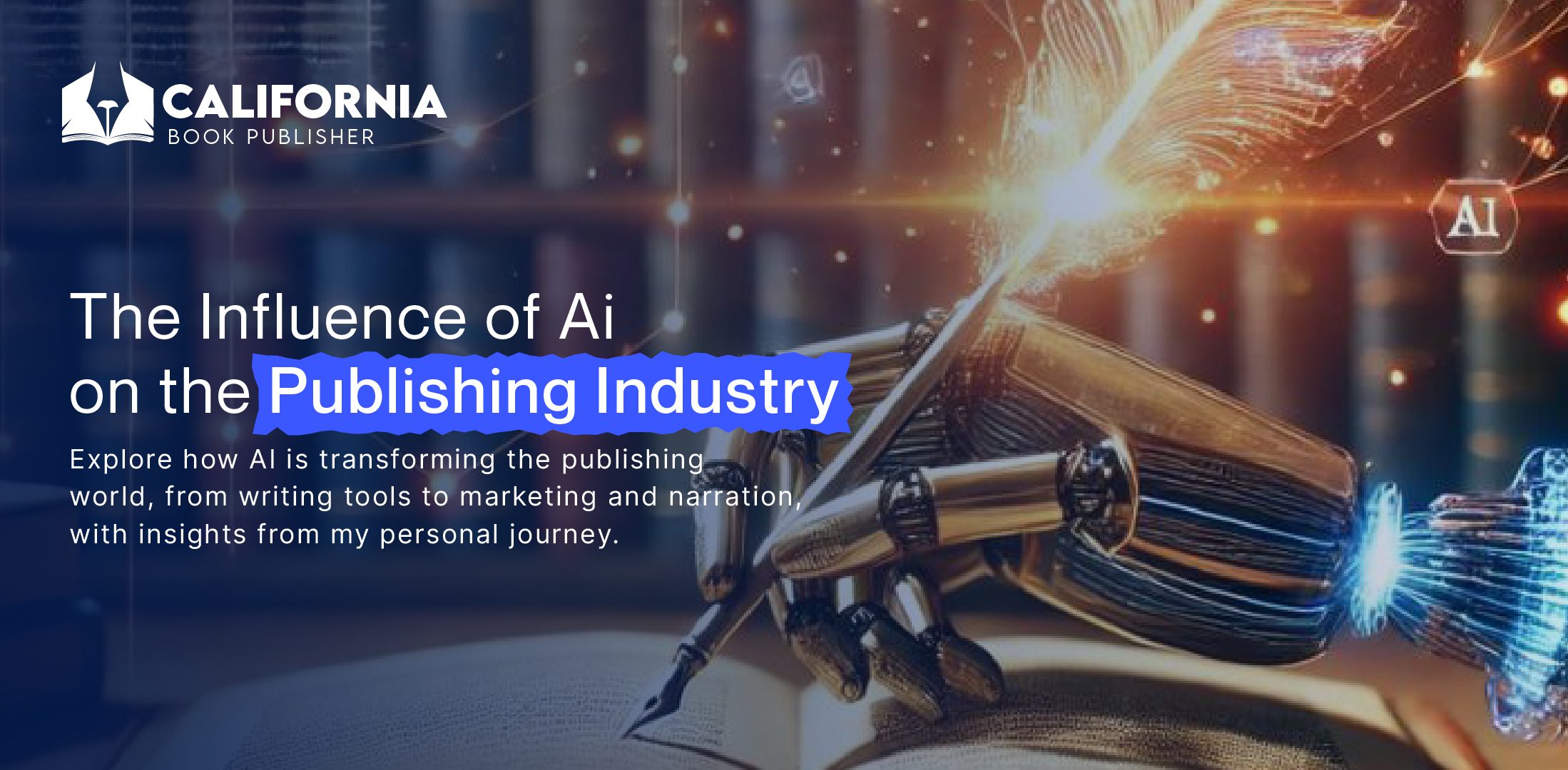
Sneak Peek: A Writer’s View of AI in Publishing
I’m going to share my personal experience throughout this blog to give you a firsthand look at how AI is revolutionizing the publishing industry, from writing tools to marketing strategies. So, if you’re curious about how this all works, read on!
AI-Powered Writing Tools: Your New Writing Assistant (Or Competitor?)
As an author, one of my biggest challenges is maintaining creativity while ensuring high-quality writing. Over the past few years, I’ve found AI publishing tools to be an incredible help. Platforms like Grammarly, ProWritingAid, and Sudowrite are at my fingertips and offer more than basic proofreading.
How AI Tools Enhance My Writing:
- Grammar & Style: They polish sentence structure and improve clarity.
- Idea Generation: Useful for overcoming writer’s block.
- Tone Matching: AI helps tailor tone to match audience expectations.I remember reading a Daily Mail article in 2022 about an AI-written book that mimicked the style of famous authors. It sparked debate: can AI truly replace human creativity? While some fear replacement, I believe AI should be seen as a creative partner — powerful, but not soulful.
AI in Book Marketing: Smarter, Faster, Better
Marketing once felt overwhelming, but now, AI in publishing has transformed it into a strategic advantage.
How I Use AI for Book Marketing:
- Targeted Advertising: AI helps me segment audiences on platforms like Facebook and Google.
- Book Discovery: Tools like BookBub and Goodreads recommend books using AI-driven algorithms.
- SEO Optimization: AI analyzes keywords and user intent, helping me improve book page visibility.Take The Martian by Andy Weir. This self-published hit rose to fame due to Amazon’s AI algorithm spotting its growing popularity. That’s the real power of AI publishing tools in action.
AI in Book Design and Formatting: Fast, Accessible, Professional
Book covers sell books—and now, AI in book design makes stunning visuals possible without a massive budget.
AI Design Advantages:
- Data-Driven Trends: AI suggests colors, fonts, and styles based on current market trends.
- Custom Templates: Tools like Canva provide flexible, editable options.
- Ebook Formatting: Programs like Vellum format manuscripts for Kindle, iBooks, and more with a single click.Even though The Silent Patient wasn’t AI-designed, it reflects design principles that AI tools now easily replicate, giving indie authors a competitive edge.
Ethical Questions Around AI-Generated Content
As AI becomes a bigger player in content creation, ethical and legal questions follow.
Who Owns AI-Generated Books?
If AI helps write or edit your book, is it still 100% yours? Legal frameworks haven’t caught up. Getty Images faced a lawsuit over AI-generated visuals in 2021, and similar issues are arising in the publishing world.
As creators, we need clear guidelines. Until then, transparency is key when using AI publishing tools.
AI and Audiobooks: Changing the Way We Listen
Audiobooks are booming, and AI narration is making production faster and cheaper.
AI Benefits for Audiobooks:
- Lifelike Voices: Tools like Replica Studios and Descript Overdub sound eerily human.
- Affordability: Indie authors can now afford quality narration.
- Faster Production: Cut turnaround time drastically.Though not yet as emotionally nuanced as human narrators, AI in audiobook publishing is evolving fast—and it’s exciting to witness.
What’s Next for AI in the Publishing Industry?
Looking ahead, the evolution of AI in publishing is just beginning.
Future Possibilities:
- AI-Generated Novels: Tools like AI Dungeon may soon craft full-length books.
- AI as Co-Authors: Authors may work side-by-side with AI to co-create stories.
- Book Discovery 2.0: AI will continue to refine how readers find new books.Take One the Road, a novel blending AI-generated text with human editing. It’s a peek into the co-creative future of literature.
FAQs
How can AI assist authors in writing and editing?
AI tools help with grammar, idea generation, plot development, and editing — speeding up the writing process without compromising creativity.
Are AI-generated books ethical in the publishing world?
They raise copyright concerns, but currently, humans retain authorship if they guide the process. Ethics in AI publishing is still under debate.
Will AI eventually replace human authors?
No. AI complements human creativity but cannot replicate the emotional nuance and storytelling instincts of a real author.
Final Thoughts
AI isn’t here to take over the publishing world—it’s here to amplify creativity, streamline production, and help authors reach their audience in smarter ways. From editing to marketing, cover design to audiobooks, the impact of AI in the publishing industry is transformative.
But at the heart of every story, there still needs to be a human. And for now, that’s you.




